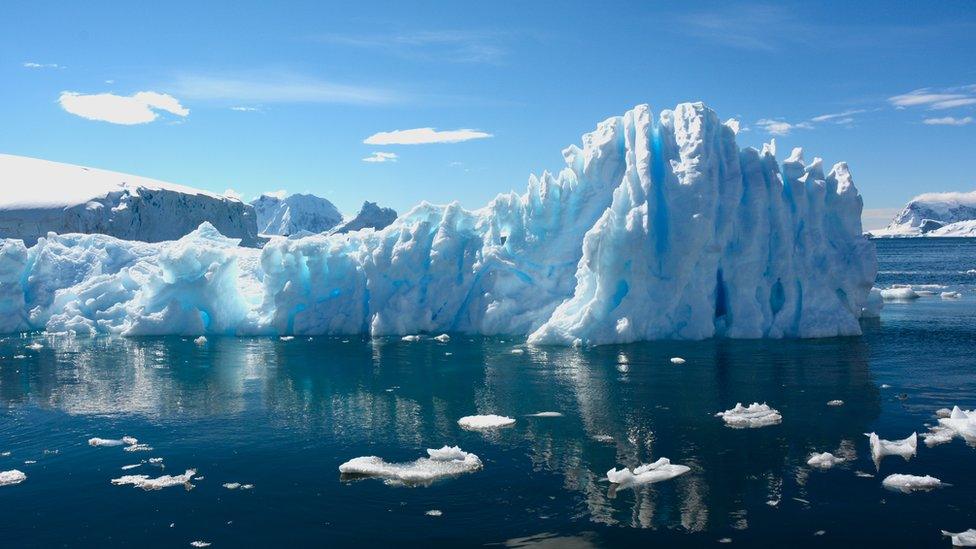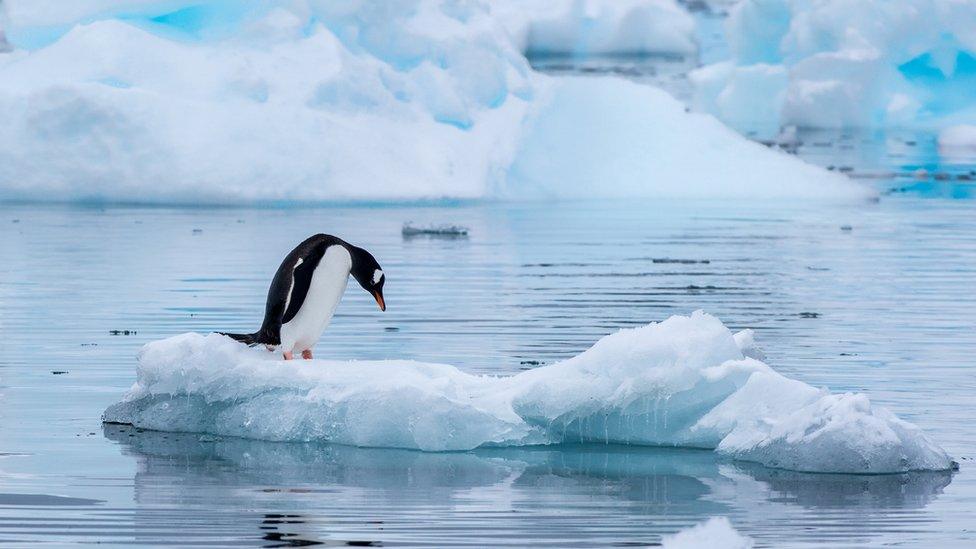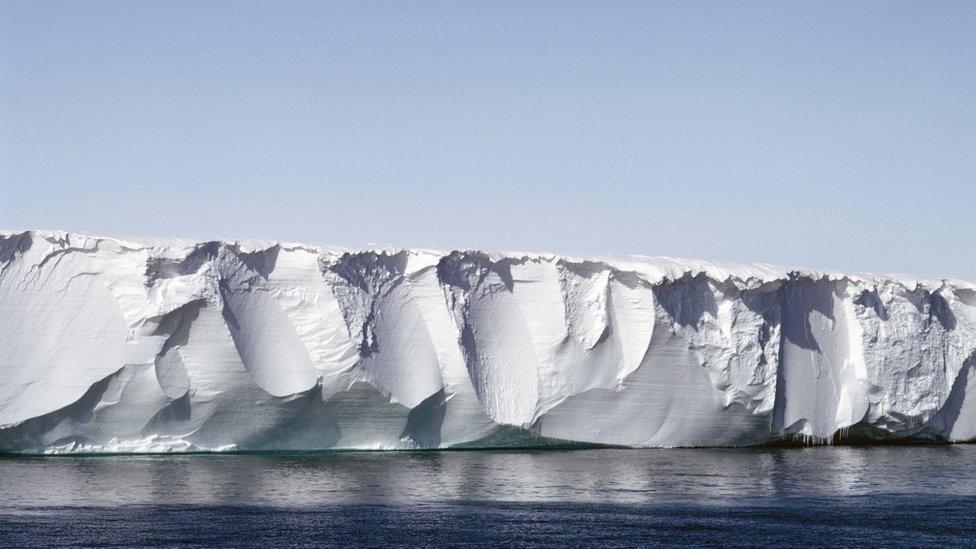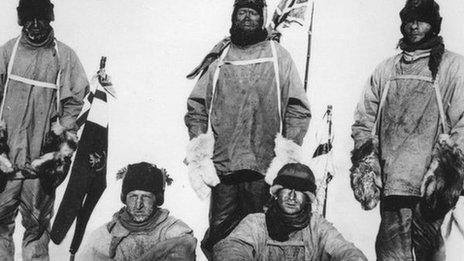Global warming: Melting Antarctic sea ice at record low
- Published
- comments

The amount of floating ice around Antarctica is suddenly going from record highs to record lows, and it's confusing scientists.
For 40 years, ice floating around the South Pole has steadily increased, reaching a record high in 2014.
But just a few years later, Nasa research has shown that the Antarctic sea ice has hit its lowest mark.
Sea ice is frozen ocean water that melts each summer, then refreezes each winter, and it floats on top of the water.

Sea ice is melting in the South Pole
Around Antarctica, which is the South Pole, sea ice averaged five million square miles in 2014. That's more than eight thousand times the size of the city of London.
By 2017, it was a record low of four million square miles, more than six thousand times the size of London.
The total size of melted ice is roughly the same as five United Kingdoms.
Losing that much in just three years "is pretty incredible" and faster than anything scientists have seen before, said study author Claire Parkinson, a Nasa climate scientist.
WATCH: Naz explains what climate change is, what causes it and what the effect is on our planet
Antarctic sea ice increased slightly in 2018, but it was still the second lowest it's been since 1979. Even though ice is growing this time of year in Antarctica, levels in May and June of 2019 were the lowest on record.
Researchers thought shifts in wind and pressure patterns had caused sea ice to steadily increase, however now the ice is decreasing, scientists are scratching their heads as to whether it has happened naturally or because of a long-term global warming problem.
Sea ice loss - especially in the Arctic but less so in the Antarctic - is one of the clearest signals of global warming, according to the National Climate Assessment.
Unlike glaciers and ice that is melting on land, melting sea ice in Antarctica doesn't increase sea levels - just like when an ice cube melts in a glass, your drink won't overflow either.
- Published2 July 2019

- Published1 May 2019

- Published17 January 2012

